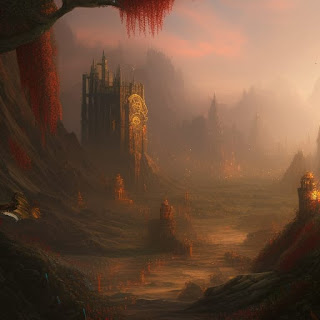101. Nature is more refined than culture, more delicate, more sincere, and more beautiful. It is only when nature has been trifled with that it becomes coarse and in need of an artificial polish.
102. All nature is on the march toward perfection.
103. Nature, in the early stages of her evolution, was chiefly concerned with life. Beauty came as an afterthought.
104. All nature overflows in some way and in some direction. And this overflow in a man's nature reveals the man.
105. Nature never harms us. She soothes us, quiets our restless nerves and fills us with harmony and health.
106. The more we love nature, the more nature reveals herself to us and the more rapidly we evolve toward the divine.
107. Nature is the supreme law and the court of last appeal on all questions of right and wrong.
108. A legal right is no right at all in the court of love. Nature does not recognise any such a right, neither does God. It is man only, among all of God's creation, who is so stupid as to assume that a legal right exists, and has precedence over the sacred rights of love.
109. Nature is more serene, and calm, and loftier than man. Man lives in perpetual discord while all nature is filled with harmony and peace.
110. Nature can sleep, but man must keep awake, or if he sleeps, must expect to dream because man's restlessness follows him even into slumberland.
111. Nature has not yet succeeded. Her work is still in the experimental stage.
112. Nature must do away with fear before she can proceed much further on her road to perfection.
113. Nature has not yet succeeded in making a man.
114. The natural is the spiritual. Every effort that nature makes is a spiritual effort.
115. Nature is forever forsaking the old for the new—is each day becoming more enlightened and intelligent.
116. The life germ in all nature is spirit, and the only difference there is in this germ is in its development—its evolution—its growth.
117. Nature has a language that requires no vocal sounds or words. A language that is more eloquent, more melodious, more beautiful, and more persuasive than that of any other language in the world.
118. It is the silence of nature that speaks with so much melody—that tells us so much of God—that fills our ears with harmony, and our spirit-life with rapture.
119. Next to the silence of nature, beauty is the most important thing that God has to disclose to us.
120. It is in the silence with nature that all the wisdom of the world is whispered—that all the secrets
of life are talked of, and nothing of importance to man is left undisclosed.
121. To listen in on the silence of nature is to listen in on God and to learn what our Creator is about.
122. The silence of nature reveals the first faint sound of every change that is to be wrought in the world and in life. It tells us all that we need to know upon every subject on which it is necessary that we be informed.
123. The most delicious fruits that nature yields are all spiritual fruits. They are spiritual enlightenment, increased self-consciousness, wisdom, an increased sense of the beautiful, a knowledge of life and what it is about, and an understanding of God.
124. In few natures is love and friendship and hate constant. In most natures, these emotions ebb and flow.
125. Nature is more concerned with the purpose of life than she is with mere life. Mere existence is of less interest to nature than evolution—than development—though existence is necessary in order that the evolution may be attained. If nature thought that she could produce nothing more perfect and loftier than she has produced, she would become despondent and discouraged and cease to struggle.
126. Morals have to do with the social relations of man, and not with nature or God. Nature and God are concerned with the good, and not with the moral.
127. Nature remembers not what was, but what is. She concerns herself only with the present and gives no thought to the past.
128. Nature has laws that deal out justice in all cases of right and wrong, automatically, and never do these laws fail to be completely, entirely, accurately just.
129. The reason why we should go to nature in its simplest forms to study spirit-life is because spirit-life is found there in its simplest form—is found there before it has become so highly developed and complicated as it is in man.
130. Nature is inhuman—yes, nature is inhuman because she is more than human; is nearer the divine.
131. Just as man at times prefers to be alone, so does nature like to retire into solitude and there be undisturbed. Man is not always welcome when he disturbs the solitude of nature.
132. Nature is largely feminine in character. She has all the feminine characteristics that we know best, and love best in woman.
133. The way to eternal life lays through nature. Nature is the gateway that leads to heaven. But there are many of these gateways in nature and we must pass through all of them before we can arrive at that celestial city.
134. Some men seek nature to learn of her; other and wiser men seek nature to communicate through her with that which is beyond her—the divine.
135. In nature, it is not the flower that is the most interesting, nor the bird, nor the tree, but the life—the spirit—that is in the flower, and the bird, and the tree.
136. The real beauty that is in nature is not in its form, or shape, or colour, but in the life that is concealed by its form, and shape, and colour.
137. All nature is a bible, and the only bible that has any vestige of authority in the universe. Yet many men who cannot interpret the inner meaning of this bible pretend to read this book for us, and to interpret its meaning to us.
138. Those only are qualified to speak of nature who are in sympathetic and emotional rapport with nature.
139. No one can be in harmony with nature who is out of harmony with God, with the good, with the purpose of life.
140. Nature is more important to us than friends, than books, than wealth. Is equal in importance to us with our own life.
141. The man who does not know nature does not know God because God is the life spark that is in nature.
142. In nature we are able to find God in his simplest form; in the only form in which we are able to grasp him and to understand him.
143. Nearly everything in nature prefers to be left alone to live its own life in its own way; prefers to be left alone to work out its own destiny.
144. Nature in her attempt to realise her conception of life and beauty begins on a small scale and proceeds upward with infinite pains and patience.
145. We belong to nature and nature to us. There is no difference. The material that is in us and in nature is the same, and the life that is in both of us is the same life. And this life differs only in its evolution—in its development.
146. To get in harmony with nature, we must be good, must obey all of nature's laws, and in just so far as we obey all of nature's laws can we hope to understand nature and the spirit-life that is in nature and in us—is us.
147. God is our father, nature our mother, and it is upon our mother that our development mostly depends.
148. Nature is our mother, our most valuable friend and guide, and like unto the human mother who gave us birth, nature should be loved and respected and followed.
149. Nature has improved by experience. She is able to do today what she was not able to do a few hundred centuries ago, or when the spirit-life that is in man was first entrusted in her care.
150. Nature is not so proud of man as man assumes. She loves him less than she loves her latest born—that tiny spark of God that is more in need of her parental love and care, and of whom, perhaps, she expects more than from man.
Spiritual Evolution—Thoughts on the Evolution of Spirit-Life and Various Other Subjects, Benjamin F. Woodcox, Woodcox & Fanner, Battle Creek, Michigan, 1921










_Star-Forming+Pillar+of+Gas+and+Dust+NASA,+H.+Ford+(JHU),+G.+Illingworth+(UCSC+LO),+M.Clampin+(STScI),+G.+Hartig+(STScI),+the+ACS+Science+Team,+and+ESA.jpg)






